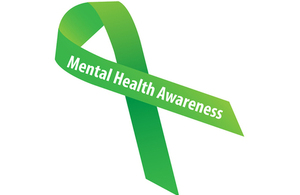It is the vehicle which drives us through every day: from the moment we wake up until we finally go to sleep. No matter who we are, we may suffer with mental health issues. It is important to understand that these are not unique to people’s backgrounds, cultures, disabilities, religious beliefs, jobs etc.
People going through their sight loss journey are very likely to have mental health issues because of change in sight and feelings such as: “Is this real”, “Why me”, “How will I cope with everyday life”, “This is so unfair”, “What will my family and friends think of me”, “I am feeling so anxious”, “I’m scared”, “I don’t want to be here any more”.
People who have always been blind/partially sighted from birth may experience feelings of inadequacy due to ignorance of family members, made to feel different in mainstream education or victims of bullying by sighted peers.
All blind or partially sighted people may experience discrimination whilst looking for employment or within the workplace including harassment or victimisation.
People with autism or learning disabilities, as well as visual impairment, are more likely to have mental health problems due to anxiety issues associated with their disabilities, the impact that each disability has on the other and the inability to communicate their emotions effectively because of a lack of vocabulary or they are not able to speak at all.
People from BAME backgrounds can experience particular stigma due to the misinterpretation of religious beliefs, cultures and traditions. Over time these misunderstandings can lead to stereotypical attitudes about peoples’ cultures and ultimately prejudice. Dealing with prejudice and racism causes social isolation and poor mental health which has an impact on how generally healthy a person is. It has been well-documented that BAME groups have poorer health outcomes sometimes because of the way health information and services are distributed in BAME communities. Information relating to health conditions in an easier to read format makes it more understandable and benefits everyone: in particular those with autism, learning disabilities, Alzheimer’s, and those whose English may not be their first language or particularly fluent.
There are a number of therapies and solutions out there which may be of help. Here are just a few: Mindfulness is an age-old practice which may help to deal with symptoms of mental health such as anxiety, insomnia, and stress. Beverley Duguid has developed inclusive mindfulness sessions for people with sight loss
https://www.insightmind.co.uk/booking
Workplace Wellbeing Coaches who have been trained to listen and ask open questions, assess needs and advise contact with health professionals and organisations able to offer more in-depth counselling and therapy. Alongside his role as an Eye Care Champion, Wayne Chapman is a Workplace Wellbeing Coach at SeeAbility where he supports colleagues with issues such as anxiety, depression, work-life balance, victimisation, not being taken seriously, and living with the impact of having more than one disability in day to day life. Talking therapies such as cognitive behavioural therapy or CBT improves thinking and understanding of difficult situations and is available on the NHS. (please speak to your GP) or see https://www.nhs.uk/service-search/find-a-psychological-therapies-service/
Some sight loss organisations offering talking therapies include:
Sight Loss Counselling – RNIB https://www.rnib.org.uk/services-we-offer-advice-and-support-services/sight-loss-counselling-team
Macular Disease Society https://www.macularsociety.org
Glaucoma UK HYPERLINK “https://glaucoma.uk/” https://glaucoma.uk
Retina UK https://retinauk.org.uk
Diabetes UK https://www.diabetes.org.uk
Esme’s Umbrella (offering support with Charles Bonnet Syndrome which causes hallucinations and can be wrongly diagnosed as a mental health condition) https://charlesbonnetsyndrome.uk
Written by Beverley Duguid & Wayne Chapman
BAME Vision



